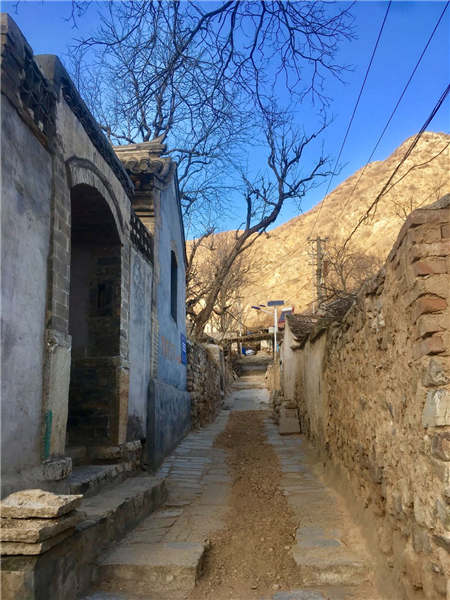 |
|
Jieshi village in the mountains of Beijing's Mentougou district offers peace and a genuine rural experience. [Photo by Erik Nilsson/China Daily] |
My son stepped in one of the pits. Fortunately, it wasn't lit.
But we had to leave to prevent him from spreading ashes around her house.
We returned to the silence outside.
We only saw-or heard-a handful of vehicles over three days during the Western New Year holiday-a peak time for all tourism destinations.
And we also only encountered a trickle of visitors. The few travelers, like us, stayed in private courtyards offered by the hamlet's only hotel.
It was in our courtyard that the leaf startled me.
The thing is, there's hardly anyone around to make any noise in Jieshi. So most sounds come from things.
There's no convenience store-residents instead buy basics from the back of a van parked on the main road. The owner kindly gave my kids a bag of oranges as a gift.
That's exactly when and where the mongrels and "mad-dog granny" showed up.
Jieshi was once known for an abundance of wells that pock its terrain and gave rise to its original population.
But they dried out long ago.
No water means no agriculture. And no agriculture means no livelihoods.
So, most people left the remote settlement.
Trees have reclaimed the mountainside terraces that once hosted crops. The painstaking landscaping of the past has eroded into bumps that rib the slopes rather than sharp stair steps that jutted when they still supported harvests.
The river that frames in the hamlet and the pond in front of an abandoned red-walled temple also evaporated long ago.